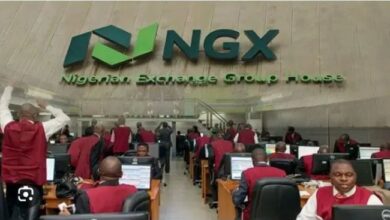Dangote Slams Africa’s $90bn Fuel Import Paradox, Urges Policy Shift

Africa’s richest man and President of Dangote Group, Aliko Dangote, has raised a red flag over what he describes as the “economic absurdity” of Africa exporting crude oil while spending over $90 billion annually to import refined petroleum products.
Speaking at the inaugural West African Refined Fuel Conference held Tuesday in Abuja, Dangote described the situation as a policy and infrastructure failure that continues to export jobs and import poverty across the continent.
The high-level summit was organised by the Nigerian Midstream and Downstream Petroleum Regulatory Authority (NMDPRA) in collaboration with S&P Global Commodity Insights.
Africa’s Crude Riches, Refining Poverty
Dangote painted a paradoxical picture: Africa produces 7 million barrels of crude oil daily, yet only refines 40% of its own fuel needs locally.
“Africa consumes about 4.3 million barrels of refined fuel daily, but imports nearly 120 million tonnes annually. This is a $90 billion market opportunity lost to other regions,” he stated.
He noted that only Algeria, Egypt, and now Nigeria — with the commencement of operations at the 650,000 bpd Dangote Refinery — are contributing meaningfully to refining within the continent.
By contrast, Europe and Asia refine 95% of their petroleum consumption domestically, a benchmark Dangote said Africa must aspire to match if it seeks energy security and sustainable growth.
Dangote Refinery: Building Amid Barriers
Speaking candidly about the journey of constructing the world’s largest single-train refinery, Dangote detailed a catalogue of hurdles — from sourcing crude oil to navigating excessive port fees and regional regulatory fragmentation.
Despite Nigeria’s production of over 2 million barrels per day, the refinery struggled to access domestic crude.
“We thought crude oil would be the easiest part. But instead of direct access, we were negotiating with international middlemen selling Nigerian crude at a premium,” he said.
He revealed that the Dangote Refinery has had to import 9–10 million barrels per month from the U.S. and other countries, undermining its commercial viability.
Port logistics posed further obstacles. Dangote disclosed that port charges account for 40% of total freight costs, in some cases rivaling the cost of chartering an entire vessel — a massive disincentive for local manufacturing.
Fragmented Fuel Standards Undermine Intra-African Trade
Dangote also highlighted how inconsistent fuel quality standards across African countries hinder intra-regional trade and the growth of domestic refining capacity.
“The diesel produced for Nigeria can’t be sold in Ghana, Cameroon, or Togo. Yet we all drive the same vehicles,” he said, pointing to regulatory misalignment as a boon for foreign traders who exploit arbitrage opportunities while local refiners lose out.
Call to Action: Harmonise, Protect, Industrialise
The industrialist called on African governments, energy regulators, and trade blocs like ECOWAS and AfCFTA to:
- Harmonise fuel specifications across the continent
- Establish regional price benchmarks
- Protect local refiners through policy incentives, much like the U.S., EU, and Canada protect theirs
- Invest in refining infrastructure and energy corridor development
“Africa must stop exporting crude and importing refined products. It makes no economic sense,” Dangote insisted.
BRANDECONOMY ANALYSIS: The Case for an African Refining Revolution
Aliko Dangote’s bold critique comes at a pivotal time for the African energy sector. With the AfCFTA framework opening up intra-African markets, and global energy transition policies reshaping fossil fuel economics, Africa’s dependence on fuel imports is not just inefficient — it is dangerous.
The Dangote Refinery, with its sheer capacity and integrated petrochemicals complex, presents a once-in-a-generation opportunity to reverse this trend. But without:
- Crude access reforms
- Unified fuel specs
- Stable regulatory frameworks
… the continent risks continuing its cycle of external dependence and internal underdevelopment.
Bottom Line:
Africa cannot industrialise on imported energy. Dangote’s message is clear: build local, refine local, trade regional. Anything less keeps Africa trapped in a loop of lost value, job erosion, and economic leakage — all while sitting on one of the world’s richest hydrocarbon basins.








